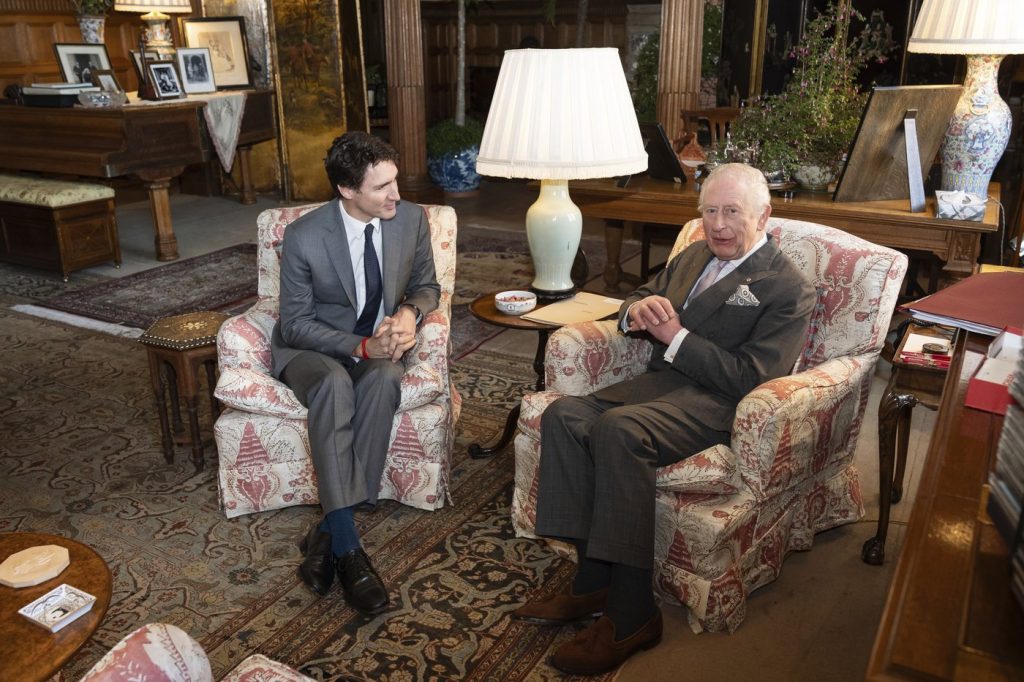A recent visit to Buckingham Palace by King Charles III, featuring symbolic gestures related to Canada, has stirred discussions among royal watchers about the monarch's tacit support for the nation. This comes amid rising tensions due to U.S. President Donald Trump's proposed annexation of Canada and a trade war between the two countries.
On March 15, 2025, King Charles presented a ceremonial sword to J. Greg Peters, the Usher of the Black Rod, in a ceremony laden with symbolism against the backdrop of U.S.-Canada relations. The King was adorned in Canadian military honors and had previously engaged with Canada’s Prime Minister Justin Trudeau and planted an Acer rubrum, or red maple tree, at the palace—an act commemorating the late Queen Elizabeth II’s commitment to forest conservation.
Royal observers note that these actions, particularly the choice of attire by Catherine, the Princess of Wales, who wore a bright red dress and coat for Commonwealth Day, signal a strong Canadian connection. Ralph Goodale, Canada’s high commissioner to the U.K., remarked on social media that her wardrobe signified “Canada’s colours,” emphasizing the importance of symbolism in diplomacy.
Professor Nicolas Kenny from Simon Fraser University suggested that the series of royal gestures aimed at Canada represents a deliberate emphasis on strengthening ties. He mentioned that while the British sovereign traditionally makes symbolic gestures to Commonwealth countries, the timing and accumulation of these recent actions are not coincidental. He speculated that they may serve as a form of compensation for British Prime Minister Keir Starmer's silence on Trump's comments regarding Canada’s potential status as the 51st U.S. state.
While King Charles III's gestures convey a sense of support for Canada, his political role remains confined within the boundaries of constitutional monarchy. Carolyn Harris, a royal commentator, indicated that balancing the interests of the U.K. and its Commonwealth realms creates a delicate situation for the King, who must navigate political neutrality. Despite his limited authority, there are indications that the King is attuned to significant global events, as noted during his meeting with Trudeau, where discussions revolved around Canada’s independent future.
The King’s private audience with the Usher of the Black Rod and Senate Speaker Raymonde Gagné, following the sword presentation, further highlighted the ongoing dialogue regarding pressing national and international matters.
Harris suggested that through thoughtful choices in behavior, attire, and public engagements, the King may subtly remind Canadians of his role as their monarch. Arthur Milnes, a political speechwriter, underscored the monarch's function as a “sounding board” for Canadian prime ministers, asserting the historical knowledge and commitment to confidentiality that both Queen Elizabeth II and King Charles possess.
Against the backdrop of fluctuating international dynamics, the King stands as a symbol of stability for Canada, underscoring the distinctions that separate the nation from its neighbor to the south. Milnes highlighted that despite Trump's aspirations to hold a position of power, Canada will always have its own monarch, reinforcing Canadian identity and sovereignty.










